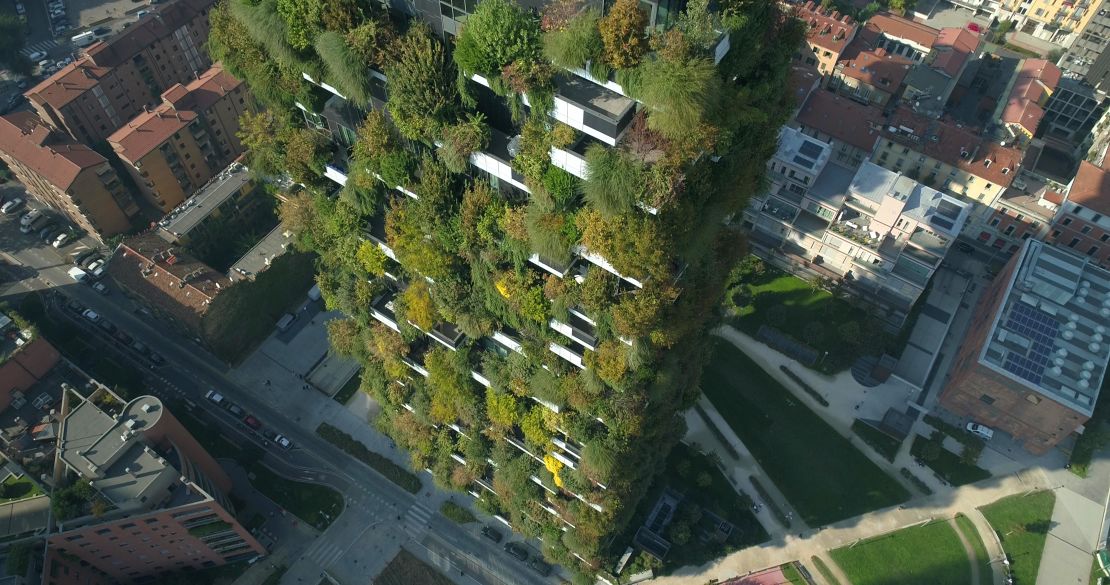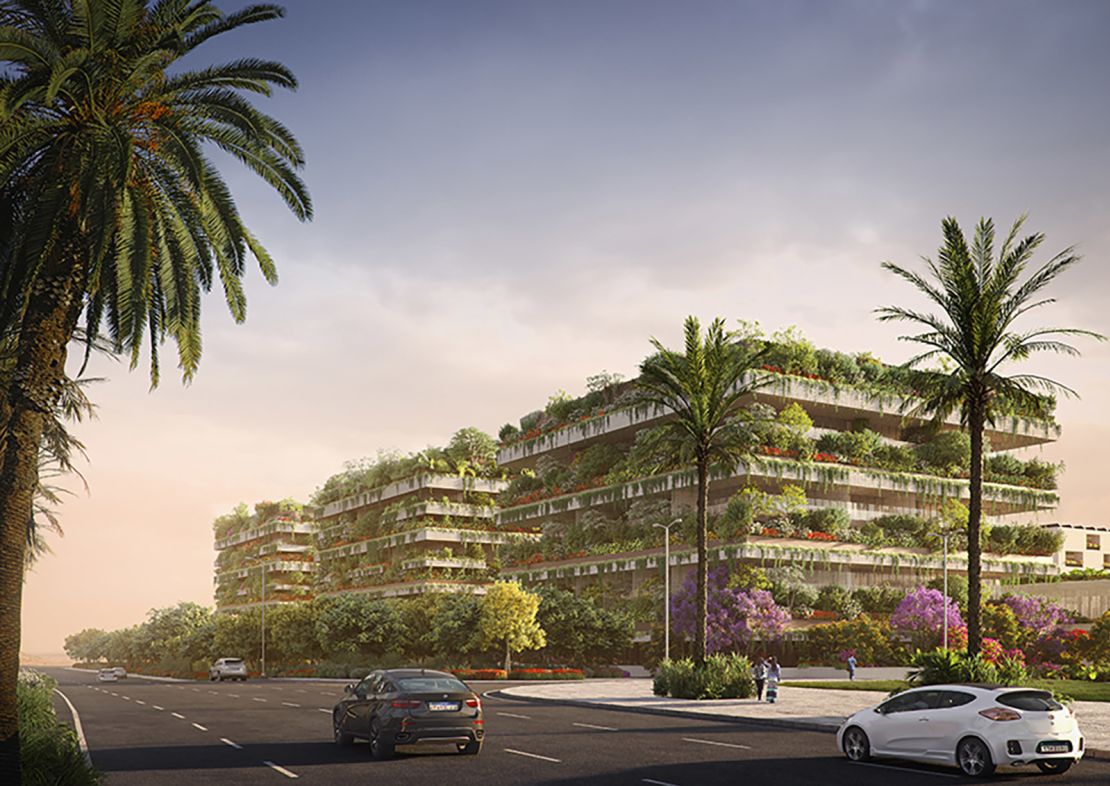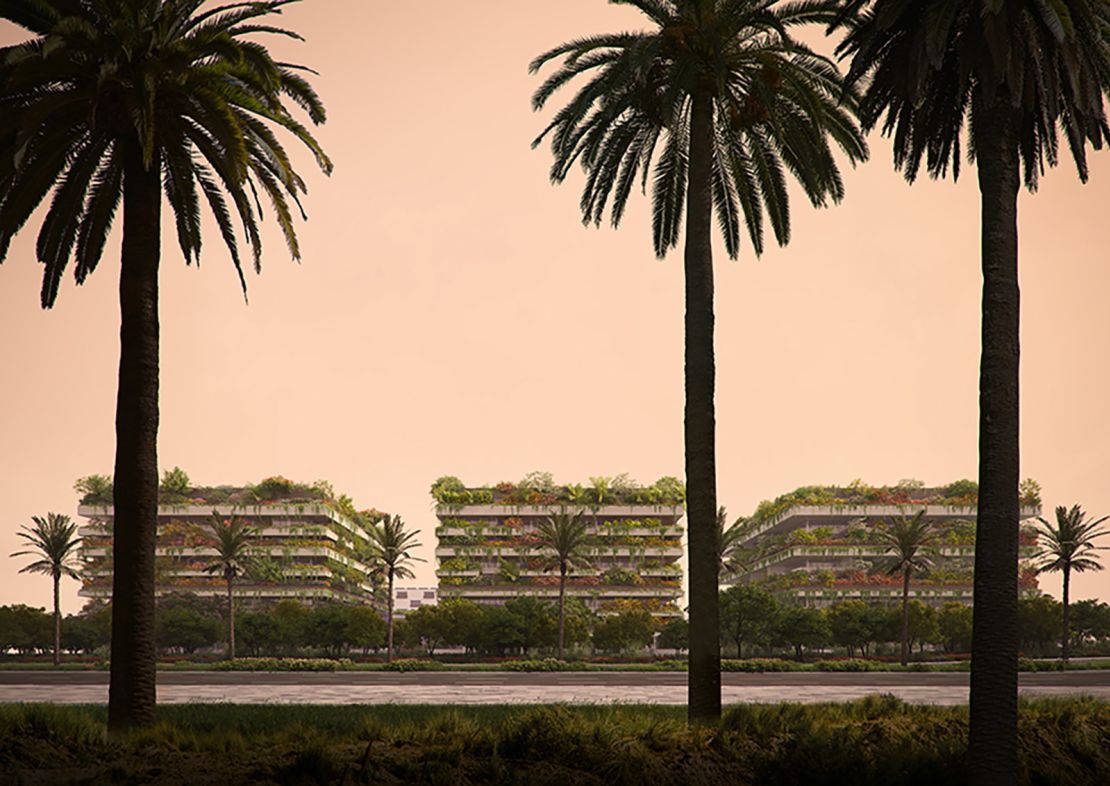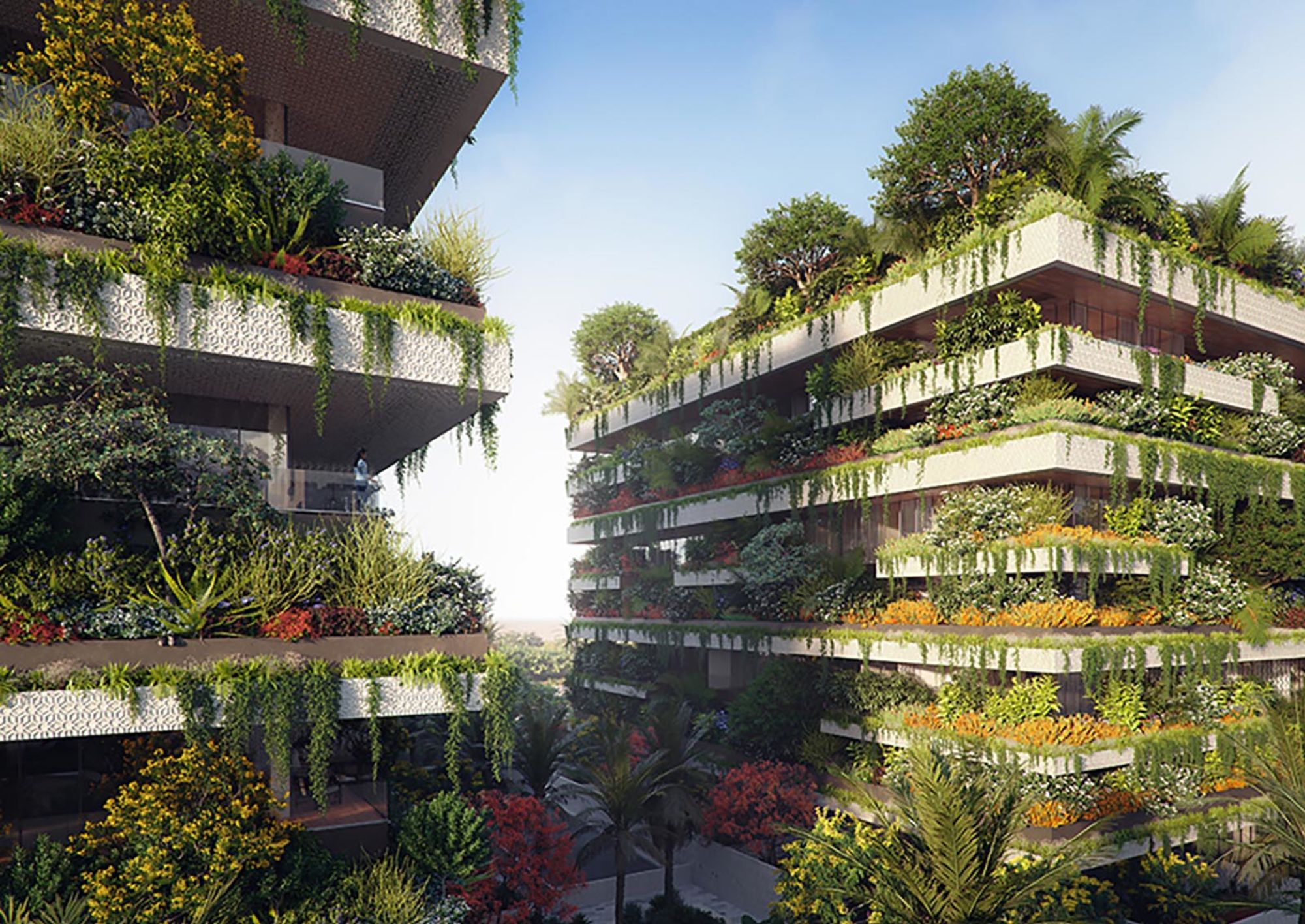Home to the ancient pyramids, Egypt is no stranger to architectural innovation. So it is no surprise that it is set to become the first African nation to host a “vertical forest.”
Italian architect Stefano Boeri has unveiled plans for three cube-shaped vertical forest apartment blocks for Egypt’s new administrative capital, currently being built in the desert 30 miles east of Cairo.
Boeri is an architect on a mission. A manifesto published on his firm’s website commits to “a global campaign on urban forestry” that spans city farms, roof gardens, green facades and other forms of public greenery. His signature tower blocks, first erected in his home city of Milan, are adorned with lush foliage which not only looks beautiful but also provides environmental and health benefits.
Working in conjunction with Egyptian designer Shimaa Shalash and Italian landscape architect Laura Gatti, Boeri’s practice – Stefano Boeri Architetti – has unveiled designs for three buildings covered in planted terraces in Egypt.

Each of the three will measure 30 meters (98ft) by 30 meters (98ft), and rise seven storys high. Boeri estimates that the trio, designed for property developer Misr Italia Properties, will hold 350 trees and 14,000 shrubs of over 100 species overall.
According to Boeri’s website, the vertical forest scheme is a “project for the environmental survival of contemporary cities” designed to promote the “coexistence of architecture and nature in urban areas”. They seek to regenerate urban environments without expanding the city’s sprawling footprint. Each tower of trees aims to provide its human residents with an average of two trees, eight shrubs and 40 bushes each.
In a 2018 interview, Boeri told CNN Style: “The ability to enlarge green surfaces inside and around our city is one of the most efficient ways to try to reverse climate change,” he said. “So, a vertical forest is one of the possible ways to … enlarge biological surfaces, in the horizontal and the vertical. (The solution is) not only gardens. Why not also the side of the building?”
The inaugural project in Boeri’s home city Milan opened in 2014. In September 2018, Vertical Forest was named among four finalists for the RIBA International Prize, a biennial award honoring the world’s best new buildings.
The purported benefits of this garden architecture transcend aesthetics. Greenery, supposedly, provides shade to apartments, psychological benefits to residents and a home to wildlife.
However limited, the project is good news for Egypt, which struggles with environmental issues – last year Cairo ranked as the most polluted city in the world, according to a study by Eco Experts. Shalash has been working on the vision with Boeri for the last five years. She told CNN the project is due to begin in 2020 and complete two years later.

Of the three blocks, two will be apartments while the third will be a hotel – all of which will be energy self-sufficient. The development, planned for a central part of the new capital, will also feature shops and restaurants.
Each apartment will have its own balcony with a range of plant species suited to the local climate, planted at various heights and to bloom at different times to provide a lush appearance year round.
Plants at every level will provide natural shading and improve the surrounding air quality, by absorbing an estimated seven tons of carbon dioxide and producing eight tons of oxygen per year.
“Egypt is witnessing a flourishing moment in terms of new planning and real estate development. This is the moment to be present,” said Shalash.
Proud to be part of a process that will give Egypt “an innovative face in architecture and design,” she added: “We couldn’t think of a better start than introducing environmentally sustainable architecture solutions.”
The scheme, according to Shalash and her colleagues on the project, is part of the “ecological conversion of Cairo” which also features plans for thousands of green flat roofs and a system of “green corridors” in the city.

“It’s time to have inventive solutions, a healthier and beautiful approach that enhances the lifestyle not only for the inhabitants and but also the quality of the city for the streets’ passengers.”
She added that as a resident of the city she’d like to see green solutions for facades and rooftops, as well as more promenades and artisan boutiques along the Nile – to “give the city back its former elegance” for which it was famed around the world.
In a statement issued by his firm, Boeri said: “Cairo can become the first Northern-African metropolis to face the big challenge of the climate change and of the ecological reconversion.”
Boeri’s firm is ambitious, with plans to erect vertical forests in a host of cities spanning between Mexico and Indonesia.
In the Chinese city of Liuzhou, Guangxi province, he has masterminded an entire “Forest City,” scheduled for completion in 2020, which comprises tree-covered houses, hospitals, schools and office blocks over a sprawling 15-million-square-foot site.
But Boeri is not precious about his vision, he told CNN Style in 2018. “I’m proud to say we didn’t put any kind of copyright … because we know well the social value of this kind of building,” he said.
